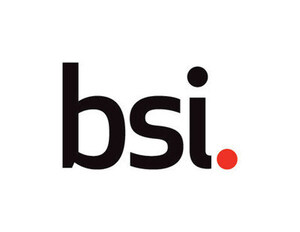Health and Safety incidents become biggest loss driver for organizations
Organizations focused on risks including cyber-attack and IT outages underrate impact of more frequent events
LONDON, Feb. 14, 2019 /PRNewswire/ -- Health and safety incidents have become the leading financial loss drivers for businesses around the globe, with cumulative losses now outstripping the costs of more high-profile disruptions such as cyber-attacks or IT outages.
Meanwhile, political change has entered the top ten list of future threats for the first time since 2015, while Blockchain and Artificial Intelligence are new risks which rank amongst top sources of potential disruption in the year ahead.
These figures stem from the annual BCI 2019 Horizon Scan, published today in association with BSI (British Standards Institution). The report analyses the risks and threats recognized by 569 organizations worldwide, comparing these against the impact of actual disruptions over the past year. Now in its eighth edition, the 2019 Horizon Scan reveals a significant gap between perceived risks and actual issues from the past 12 months.
For the year ahead, organizations are most concerned about high-impact events, including cyber-attacks, IT outages and extreme weather events, despite the fact that other incidents recurred more often and have a cumulatively higher impact. Some of the threats perceived to be low risk are being underrated when looking towards future resilience.
The clearest example of this is health and safety risks. The 2019 Horizon Scan totalled up the costs for surveyed organizations which suffered losses of more than 7 percent of annual turnover, and found that health and safety incidents cost $1.186 billion in 2018. Despite the frequency and cumulative cost of these incidents, organizations continue to perceive their impact as relatively low, ranking them twelfth on the list of top risks for 2019.
Howard Kerr, Chief Executive at BSI, commented: "It is easy for leaders to be kept awake at night by high-profile risks such as cyber-attacks, technology disruptions and IT outages. But they must not ignore the smaller, more frequent risks that steadily erode the bottom line. Organizations that do not take all threats they face seriously, or develop plans to manage them, are exposing themselves to not only reputational loss but what can become quite severe financial costs. Achieving true Organizational Resilience means identifying not only the big risks but also the under-rated issues that may just seem 'business as usual' and can easily be missed."
Other key findings of the 2019 Horizon Scan report include:
- Political change is predicted to be one of the top ten disruptions in the next 12 months but the financial aspect of political change seems to be neglected, as threats related to exchange rate volatility and higher cost of borrowing do not appear in the top ten.
- Organizations with business continuity plans in place for more than a year suffer fewer disruptions than their peers; they report lower losses (6%) than the average (7%) from disruptions in the last twelve months.
- Organizations direct a lot of time and attention towards risks that were previously considered 'black swans' – events that struck as a surprise, with a high impact on those affected. These events then become a key focus of attention. Risks such as critical infrastructure failure and natural disasters are among the most anticipated disruptions with high risk scores (5.47 and 5.43 respectively).
Tim Janes, Chair of the BCI, commented: "For continuity and resilience practitioners the 2019 BCI Horizon Scan report provides an invaluable information resource. The findings and analysis provide insights that can inform and confirm planning assumptions and bring fresh ideas to benefit your exercise scenarios and continuity programme."
Media contacts: |
|
Sarah Mars Bowie |
Lucy Robinson/Naomi Prior |
Finn Partners |
BSI |
Tel: +1 202-974-5081 |
Tel: +44 20 8996 6330 |
Email: [email protected] |
Email: [email protected] |
About BSI
BSI (British Standards Institution) equips businesses with the necessary solutions to turn standards of best practice into habits of excellence. From assessment, certification and training to software solutions, advisory services and supply chain intelligence, BSI provides the full solution to facilitate business improvement and help clients drive performance, manage risk and grow sustainably. Through the passion and expertise of our people, BSI embeds excellence in organizations across the globe to improve business performance and resilience. BSI's influence spans across multiple sectors with particular focus on Aerospace, Automotive, Built Environment, Food, Retail, Healthcare and IT. To learn more, please visit www.bsigroup.com/en-us
About BCI
Founded in 1994 with the aim of promoting a more resilient world, the Business Continuity Institute (BCI) has established itself as the world's leading Institute for business continuity and resilience. The BCI has become the membership and certifying organization of choice for business continuity and resilience professionals globally with over 8,000 members in more than 100 countries, working in an estimated 3,000 organizations in the private, public and third sectors.
The vast experience of the Institute's broad membership and partner network is built into its world class education, continuing professional development and networking activities. Every year, more than 1,500 people choose BCI training, with options ranging from short awareness raising tools to a full academic qualification, available online and in a classroom. The Institute stands for excellence in the business continuity and resilience profession and its globally recognised certified grades provide assurance of technical and professional competency. The BCI offers a wide range of resources for professionals seeking to raise their organization's level of resilience, and its extensive thought leadership and research programme helps drive the industry forward. With approximately 120 Partners worldwide, the BCI Partnership offers organizations the opportunity to work with the BCI in promoting best practice in business continuity and resilience.
The BCI welcomes everyone with an interest in building resilient organizations from newcomers, experienced professionals and organizations. Further information about the BCI is available at www.thebci.org.
SOURCE BSI
Related Links
https://www.bsigroup.com/en-us
WANT YOUR COMPANY'S NEWS FEATURED ON PRNEWSWIRE.COM?
Newsrooms &
Influencers
Digital Media
Outlets
Journalists
Opted In




Share this article